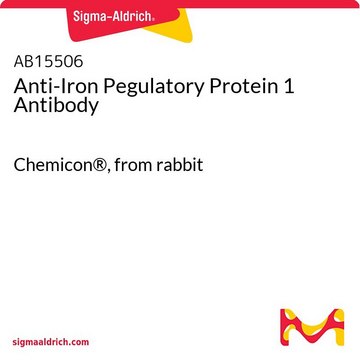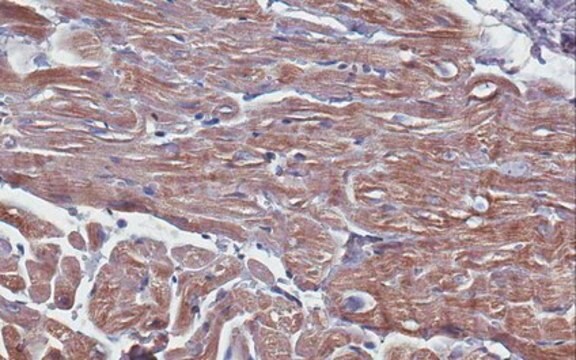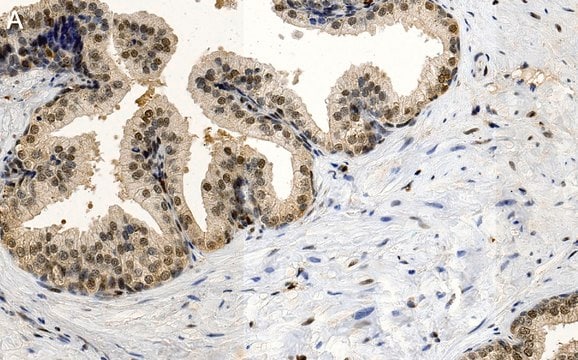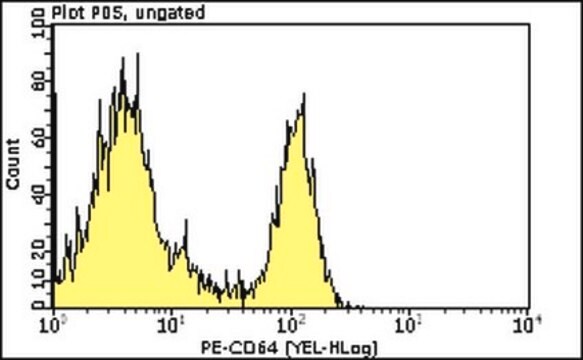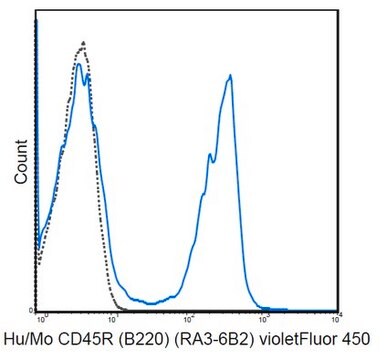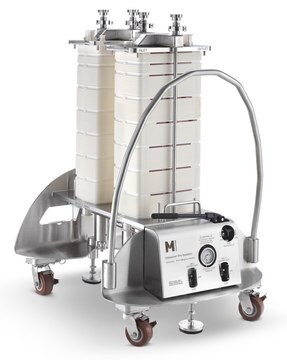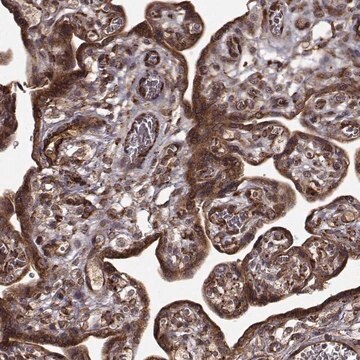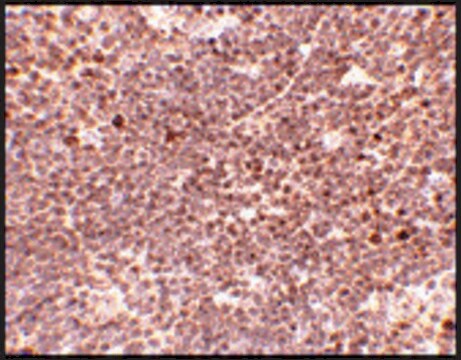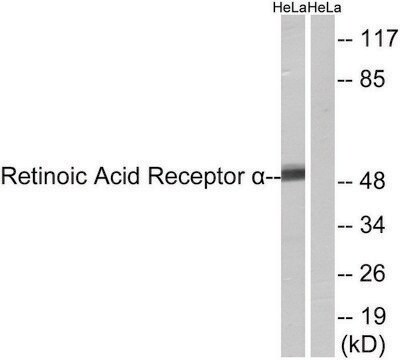ABE1336
Anti-Wee1
from rabbit, purified by affinity chromatography
Synonyme(s) :
Wee1-like protein kinase, EC: 2.7.10.2, WEE1hu, Wee1A kinase
About This Item
Produits recommandés
Source biologique
rabbit
Niveau de qualité
Forme d'anticorps
affinity isolated antibody
Type de produit anticorps
primary antibodies
Clone
polyclonal
Produit purifié par
affinity chromatography
Espèces réactives
human
Réactivité de l'espèce (prédite par homologie)
mouse (based on 100% sequence homology), bovine (based on 100% sequence homology), rat (based on 100% sequence homology)
Conditionnement
antibody small pack of 25 μg
Technique(s)
immunohistochemistry: suitable (paraffin)
western blot: suitable
Numéro d'accès NCBI
Numéro d'accès UniProt
Modification post-traductionnelle de la cible
unmodified
Informations sur le gène
human ... WEE1(7465)
Catégories apparentées
Description générale
Spécificité
Immunogène
Application
Epigenetics & Nuclear Function
Immunohistochemistry Analysis: A 1:1,000 dilution from a representative lot detected Wee1 in human placenta and human testis cancer tissues.
Qualité
Western Blotting Analysis: 2 µg/mL of this antibody detected Wee1 in 10 µg of HepG2 cell lysate.
Description de la cible
Forme physique
Stockage et stabilité
Autres remarques
Clause de non-responsabilité
Vous ne trouvez pas le bon produit ?
Essayez notre Outil de sélection de produits.
Certificats d'analyse (COA)
Recherchez un Certificats d'analyse (COA) en saisissant le numéro de lot du produit. Les numéros de lot figurent sur l'étiquette du produit après les mots "Lot" ou "Batch".
Déjà en possession de ce produit ?
Retrouvez la documentation relative aux produits que vous avez récemment achetés dans la Bibliothèque de documents.
Notre équipe de scientifiques dispose d'une expérience dans tous les secteurs de la recherche, notamment en sciences de la vie, science des matériaux, synthèse chimique, chromatographie, analyse et dans de nombreux autres domaines..
Contacter notre Service technique